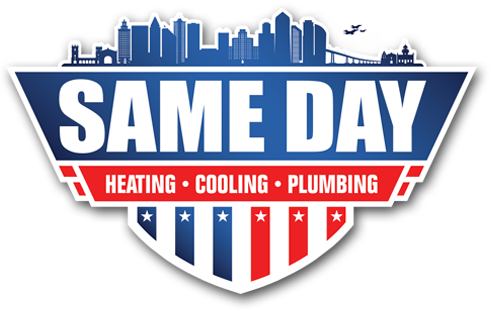How Long Does A Furnace Last?
If your furnace is getting up there in age, you may be wondering to yourself: how long does a furnace last? While this is a very loaded question, the short, best answer is simple: it depends.
On average, you can expect a furnace to last about 15 years. It’s worth noting however that you can, and should, take this number with a grain of salt.
How long a furnace typically lasts is a function of many different factors. For example, the age, make, model, maintenance history, environmental conditions, and others, all impact how long your furnace should last.
A furnace that is housed in a well-ventilated area, and has been properly serviced and maintained since its installation, for example, will last longer than one that has been more neglected.
Similarly, newer furnaces tend to last longer than older models, and gas systems also tend to have longer lifespans than their electric counterparts, although again, a variety of factors contribute to just how well gas systems perform in terms of longevity against electric systems.
For most 20-year-old furnaces, a drop off in efficiency is expected. While most newer models operate with 95% efficiency, an older model operates at 60% efficiency. This means that with a new furnace, only 5% of the heat generated is wasted. With an old unit, this number reaches 40%.
How To Extend Your Furnace Life
Like so many other things in life, from your car to your body, the way you take care of your furnace matters. Taking the proper, proactive care, from changing out the filters regularly to having at least yearly service done can tremendously impact how long you can expect your furnace to last.
You should have an HVAC specialist check your furnace at least once a year to ensure the following are all in order:
- Venting
- Pilot light, burners, and thermostat
- Wiring and controls
- Filter
How To Test Your Furnace
If you notice that your furnace is not working, you can complete a simple DIY temperature rise check yourself, as is explained in an article from Structure Tech. If it is still not working after doing this, it may be time to call a professional.
To begin, the article explains to set your thermostat to heat and turn up the temperature by 10 degrees. Wait about 15 minutes, and the furnace should be running during this time. If it shuts off early, you may have a problem. Once it has been running for 15 minutes straight, you should be able to rest your hand on the warm furnace without any pain.
Next, it explains, you will want to check the temperature of the furnace with a meat thermometer and do the same with the return air (check this at the filter door). The difference between these two numbers is known as the “temperature rise” and should be somewhere between 30-60 degrees on most furnaces. If the number is above 60, you may want to check your filter to see if it is dirty.
After this, if you are still experiencing problems, you will want to schedule an appointment with a specialist.
Lifespan Factors Out of Your Control
While there may be a lot you can do to take charge of the lifespan of your furnace, there are almost as many factors that are beyond your influence. For example, if you’ve moved and don’t know the particular age of your furnace, it will be hard to predict how long you might expect it to last.
Additionally, depending on the size and configuration of your home and your furnace, you may be limited when it comes to where you can install one for optimal venting and more.
When Should I Look For A Replacement?
If you notice that your furnace is simply blowing air, cold air, or the air temperature is different from room to room, that’s a good sign it’s time to have your unit checked out, at the very least. Other signs your furnace may be experiencing issues:
- Turning off and on quickly, or irregularly
- You notice dust or debris from vents
- Atypical or loud noises
- Utility bill increases (if something is wrong with your furnace, it will generally make it less efficient, which will drive up your monthly utility cost)
- ANY gas smell
- You’ve had a breakdown, or 2, within 2 years
For a comprehensive article on furnace issues, read here.
Some of these issues can mean it’s simply time to hire an HVAC repair specialist. If there’s a combination of these factors, or your unit is 10 or more years old already, it’s a good sign that it’s time to consider replacing your furnace.
Since most furnaces can be counted on to last generally no more than 15 or 16 years, age often plays a large part in determining whether or not it’s time to find a replacement.
Looking for more information? Check out our heater repair page or contact Same Day Heating & Air today!
Works Cited:
